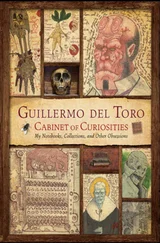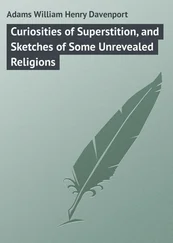Charles Bardsley - Curiosities of Puritan Nomenclature
Здесь есть возможность читать онлайн «Charles Bardsley - Curiosities of Puritan Nomenclature» — ознакомительный отрывок электронной книги совершенно бесплатно, а после прочтения отрывка купить полную версию. В некоторых случаях можно слушать аудио, скачать через торрент в формате fb2 и присутствует краткое содержание. ISBN: , Жанр: foreign_antique, foreign_prose, на английском языке. Описание произведения, (предисловие) а так же отзывы посетителей доступны на портале библиотеки ЛибКат.
- Название:Curiosities of Puritan Nomenclature
- Автор:
- Жанр:
- Год:неизвестен
- ISBN:http://www.gutenberg.org/ebooks/39284
- Рейтинг книги:3 / 5. Голосов: 1
-
Избранное:Добавить в избранное
- Отзывы:
-
Ваша оценка:
- 60
- 1
- 2
- 3
- 4
- 5
Curiosities of Puritan Nomenclature: краткое содержание, описание и аннотация
Предлагаем к чтению аннотацию, описание, краткое содержание или предисловие (зависит от того, что написал сам автор книги «Curiosities of Puritan Nomenclature»). Если вы не нашли необходимую информацию о книге — напишите в комментариях, мы постараемся отыскать её.
Curiosities of Puritan Nomenclature — читать онлайн ознакомительный отрывок
Ниже представлен текст книги, разбитый по страницам. Система сохранения места последней прочитанной страницы, позволяет с удобством читать онлайн бесплатно книгу «Curiosities of Puritan Nomenclature», без необходимости каждый раз заново искать на чём Вы остановились. Поставьте закладку, и сможете в любой момент перейти на страницу, на которой закончили чтение.
Интервал:
Закладка:
“Thus for her love and loss poor Hankin dies,
His amorous soul down flies.”
To furnish a list of English names ending in kin would be impossible. The great favourites were Hopkin (Robert), 3 3 “I also give to the said Robert … that land which Hobbekin de Bothum held of me.” – Ext. deed of Sir Robert de Stokeport, Knight, 1189-1199: Earwaker’s “East Cheshire,” p. 334.
Lampkin and Lambkin (Lambert), Larkin (Lawrence), Tonkin (Antony), Dickin, Stepkin (Stephen), 4 4 I have seen Stepkin as a surname but once. Lieutenant Charles Stepkin served under the Duke of Northumberland, in 1640. – Peacock’s “Army List of Roundheads and Cavaliers,” p. 78.
Dawkin (David), Adkin, 5 5 Adekyn was the simple and only title of the harper to Prince Edward in 1306, who attended the cour plenière held by King Edward at the feast of Whitsuntide at Westminster. – Chappell, “Popular Music of ye Olden Time,” p. 29.
now Atkin (Adam, not Arthur), Jeffkin (Jeffrey), Pipkin and Potkin (Philip), Simkin, Tipkin (Theobald), Tomkin, Wilkin, Watkin (Walter), Jenkin, Silkin (Sybil), 6 6 Sill was the nick form of Sybil and Silas till the seventeenth century, when the Puritan Silence seized it. I have only seen one instance of the surname, “John Silkin” being set down as dwelling in Tattenhall, Cheshire, in 1531 (Earwaker’s “East Cheshire,” p. 56).
Malkin (Mary), Perkin (Peter), Hankin (Hans), and Halkin or Hawkin (Henry). Pashkin or Paskin reminds us of Pask or Pash, the old baptismal name for children born at Easter. Judkin (now as a surname also Juckin) was the representative of Judd, that is, Jordan. George afterwards usurped the place. All these names would be entered in their orthodox baptismal style in all formal records. But here and there we get free and easy entries, as for instance:
“Agnes Hobkin-wyf, iiiid.” – W. D. S.
“Henry, son of Halekyn, for 17½ acres of land.” – “De Lacy Inquisition,” 1311.
“Emma Watkyn-doghter, iiiid.” – W. D. S.
“Thi beste cote, Hankyn,
Hath manye moles and spottes,
It moste ben y-wasshe.”
Malkin was one of the few English female names with this appendage. Some relics of this form of Mary still remain. Malkin in Shakespeare is the coarse scullery wench:
“The kitchen malkin pins
Her richest lockram ’bout her reechy neck,
Clambering the walls to eye him.”
While the author of the “Anatomy of Melancholy” is still more unkind, for he says —
“A filthy knave, a deformed quean, a crooked carcass, a maukin, a witch, a rotten post, a hedge-stake may be so set out and tricked up, that it shall make a fair show, as much enamour as the rest.” – Part iii. sect. 2, mem. 2, sub-sect. 3.
From a drab Malkin became a scarecrow. Hence Chaucer talks of “malkin-trash.” As if this were not enough, malkin became the baker’s clout to clean ovens with. Thus, as Jack took the name of the implements Jack used, as in boot-jack, so by easy transitions Malkin. The last hit was when Grimalkin (that is, grey-malkin) came to be the cant term for an old worn-out quean cat. Hence the witch’s name in “Macbeth.”
It will be seen at a glance why Malkin is the only name of this class that has no place among our surnames. 7 7 Nevertheless the surname did exist in Yorkshire in Richard II.’s reign: “Willelmus Malkynson, and Dionisia uxor ejus, iiiid.” – W. D. S.
She had lost character. I have suggested, in “English Surnames,” that Makin, Meakin, and Makinson owe their origin to either Mary or Maud. I would retract that supposition. There can be little doubt these are patronymics of Matthew, just as is Maycock or Meacock. Maykinus Lappyng occurs in “Materials for a History of Henry VII.,” and the Maykina Parmunter of the Hundred Rolls is probably but a feminine form. The masculine name was often turned into a feminine, but I have never seen an instance of the reverse order.
Terminations in kin were slightly going down in popular estimation, when the Hebrew invasion made a clean sweep of them. They found shelter in Wales, however, and our directories preserve in their list of surnames their memorial for ever. 8 8 I need not quote, in proof of the popularity of kin , our surnames of Simpkinson, Hopkins, Dickens, Dickenson, Watkins, Hawkins, Jenkinson, Atkinson, and the rest. I merely mention that the patronymics ending in kins got abbreviated into kiss , and kes , and ks . Hence the origin of our Perkes, Purkiss, Hawkes, and Hawks, Dawks, Jenks, Juckes, and Jukes (Judkins).
The term “cock” implied pertness : especially the pertness of lusty and swaggering youth. To cock up the eye, or the hat, or the tail, a haycock in a field, a cock-robin in the wood, and a cock-horse in the nursery, all had the same relationship of meaning – brisk action, pert demonstrativeness. The barn-door cockerel was not more cockapert than the boy in the scullery that opened upon the yard where both strutted. Hence any lusty lad was “Cock,” while such fuller titles as Jeff-cock, or Sim-cock, or Bat-cock gave him a preciser individuality. The story of “Cocke Lorelle” is a relic of this; while the prentice lad in “Gammer Gurton’s Needle,” acted at Christ College, Cambridge, in 1566, goes by the only name of “Cock.” Tib the servant wench says to Hodge, after the needle is gone —
“My Gammer is so out of course, and frantic all at once,
That Cock our boy, and I, poor wench, have felt it on our bones.”
By-and-by Gammer calls the lad to search:
“Come hither, Cock: what, Cock, I say.
Cock. How, Gammer?
Gammer. Go, hie thee soon: and grope behind the old brass pan.”
Such terms as nescock, meacock, dawcock, pillicock, or lobcock may be compounds – unless they owe their origin to “cockeney,” a spoiled, home-cherished lad. In “Wit without Money” Valentine says —
“For then you are meacocks, fools, and miserable.”
In “Appius and Virginia” (1563) Mausipula says (Act i. sc. 1) —
“My lady’s great business belike is at end,
When you, goodman dawcock, lust for to wend.”
In “King Lear”
“Pillicock sat on pillicock-hill”
seems an earlier rendering of the nursery rhyme —
“Pillicock, Pillicock sate on a hill,
If he’s not gone, he sits there still.”
In “Wily Beguiled” Will Cricket says to Churms —
“Why, since you were bumbasted that your lubberly legs would not carry your lobcock body.”
These words have their value in proving how familiarly the term cock was employed in forming nicknames. That it should similarly be appended to baptismal names, especially the nick form of Sim, Will, or Jeff, can therefore present no difficulty.
Cock was almost as common as “ kin ” as a desinence. Sim-cock was Simcock to the end of his days, of course, if his individuality had come to be known by the name.
“Hamme, son of Adecock, held 29 acres of land.
“Mokock de la Lowe, for 10 acres.
“Mokock dal Moreclough, for six acres.
“Dik, son of Mocock, of Breercroft, for 20 acres.” – “The De Lacy Inquisition,” 1311.
Adecock is Adam, and Mocock or Mokock is Matthew. In the same way Sander-cock is a diminutive of Sander, Lay-cock of Lawrence, Luccock of Luke, Pidcock and Peacock of Peter, Maycock and Mycock of Matthew, Jeff-cock of Jeffrey, Johncock of John, Hitch-cock or Hiscock or Heacock of Higg or Hick (Isaac), Elcock of Ellis, Hancock or Handcock of Han or Hand (Dutch John), Drocock or Drewcock of Drew, Wilcock of William, Badcock or Batcock of Bartholomew, and Bawcock of Baldwin, Adcock or Atcock of Adam, Silcock of Silas, and Palcock of Paul:
Читать дальшеИнтервал:
Закладка:
Похожие книги на «Curiosities of Puritan Nomenclature»
Представляем Вашему вниманию похожие книги на «Curiosities of Puritan Nomenclature» списком для выбора. Мы отобрали схожую по названию и смыслу литературу в надежде предоставить читателям больше вариантов отыскать новые, интересные, ещё непрочитанные произведения.
Обсуждение, отзывы о книге «Curiosities of Puritan Nomenclature» и просто собственные мнения читателей. Оставьте ваши комментарии, напишите, что Вы думаете о произведении, его смысле или главных героях. Укажите что конкретно понравилось, а что нет, и почему Вы так считаете.











